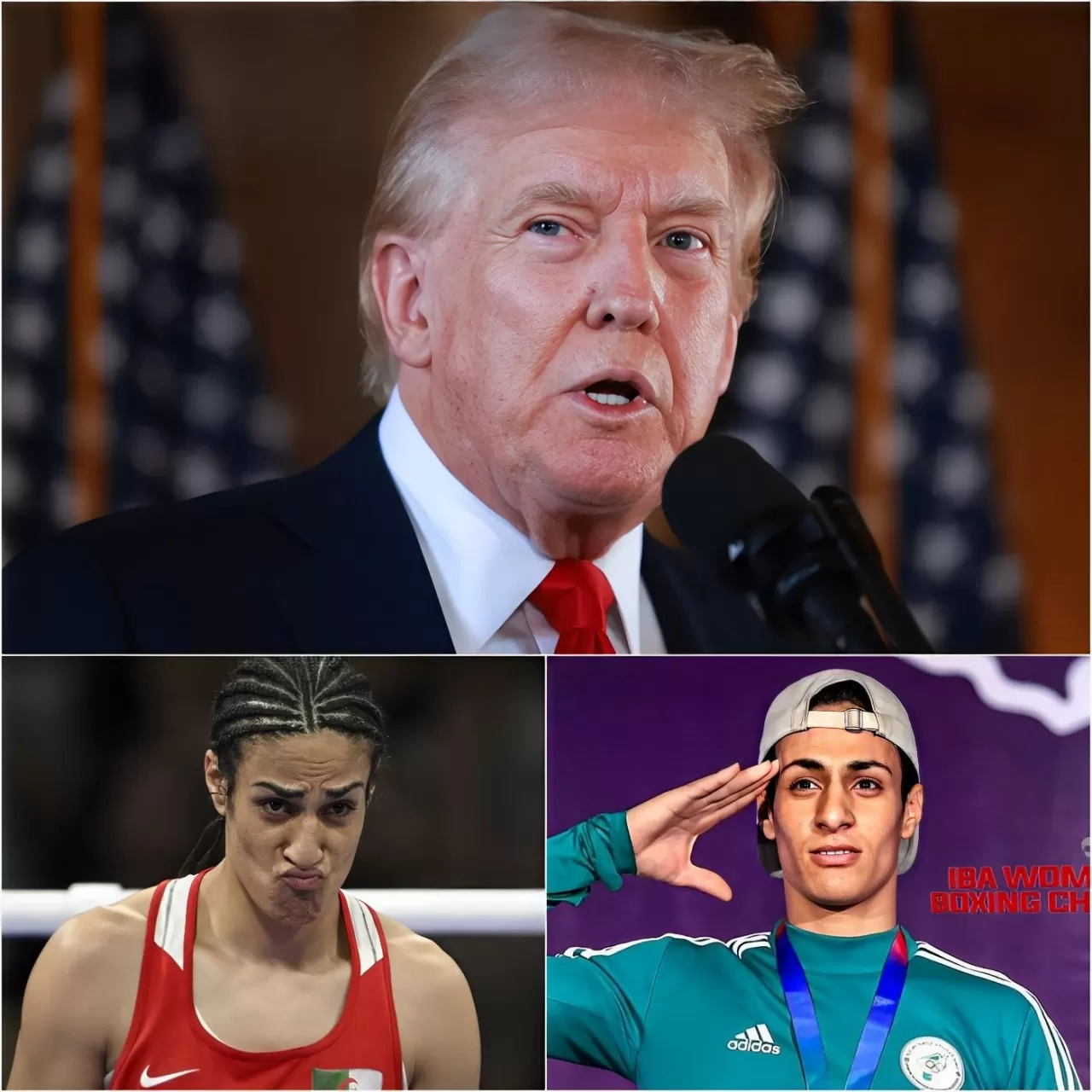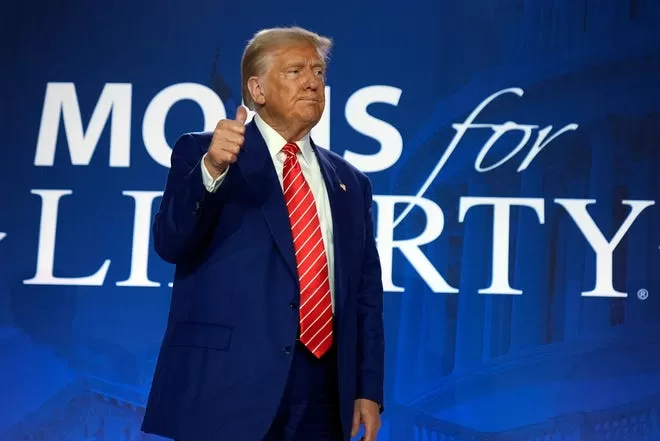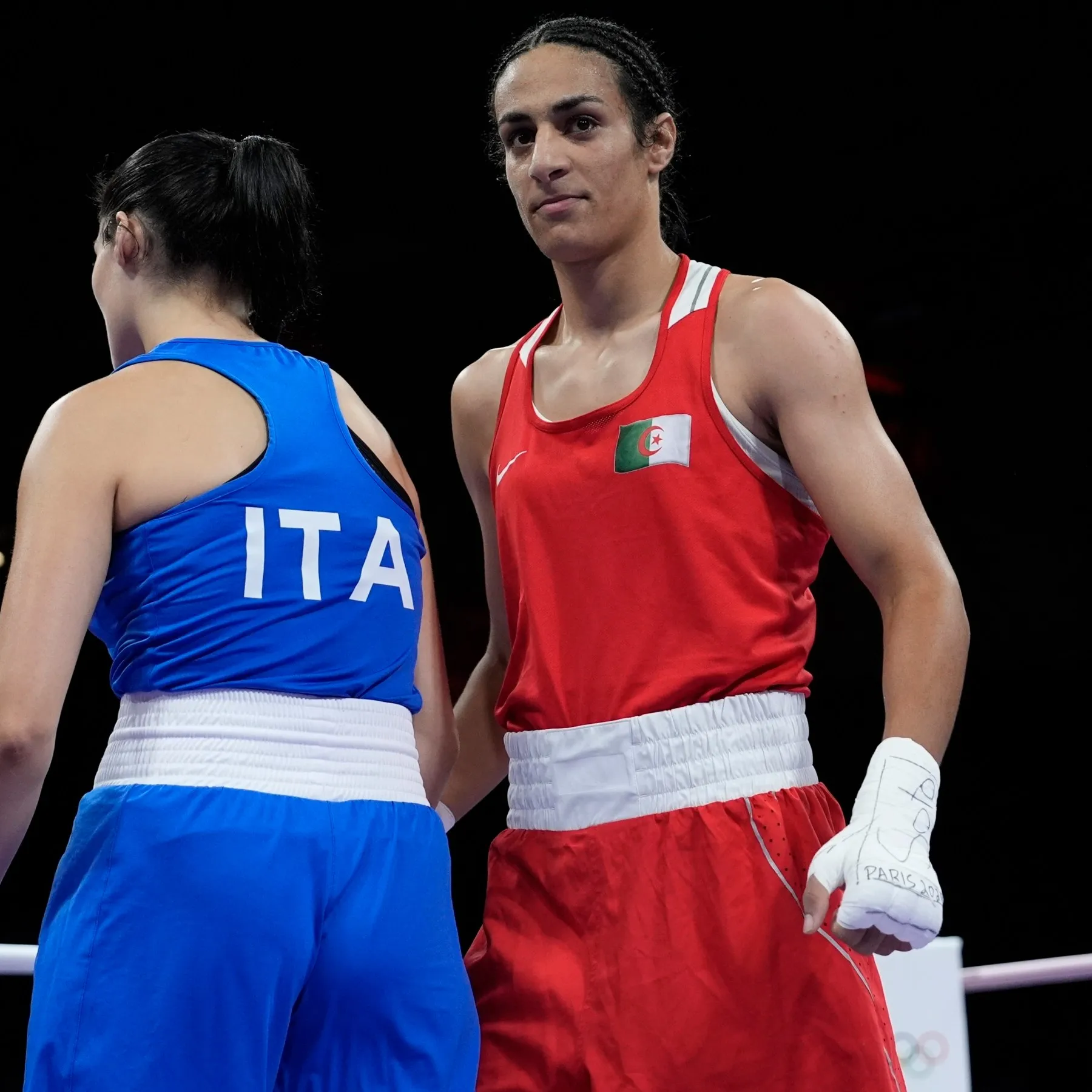Former U.S. President Donald Trump has ignited a fresh wave of controversy after calling for a complete ban on transgender athletes in women’s sports. This demand follows the recent gender controversy surrounding boxer Imane Khelif during the 2024 Olympics. Trump’s comments have once again thrust the issue of transgender inclusion in sports into the national spotlight, drawing a mix of support and backlash from the public and sporting communities alike.

The uproar began at the 2024 Olympics when Algerian boxer Imane Khelif, who was set to compete in the women’s boxing category, became the center of a gender controversy. Reports surfaced suggesting that Khelif may have male biological characteristics, prompting widespread debate and a review by the International Boxing Association (IBA). The IBA’s statement acknowledged that Khelif possessed specific biological traits more commonly associated with males, which led to her disqualification from the competition.
The incident sparked a heated discussion about gender identity, biological sex, and fair competition in women’s sports, with various stakeholders weighing in on the issue.
Amid this controversy, Donald Trump weighed in during a rally in Florida, calling for an outright ban on transgender athletes competing in women’s sports. “We have to protect the integrity of women’s sports,” Trump declared to a cheering crowd. “These athletes have worked their entire lives to compete at the highest levels, and we can’t allow this to be taken away from them. It’s not fair, and it’s not right.”
Trump went further, directly referencing the Khelif case as evidence of what he sees as a broader issue. “Look at what happened with this boxer, Imane Khelif,” he said. “This is a prime example of why we need clear rules and protections. We need to ban transgender athletes from competing in women’s sports to ensure fairness and safety.”

Trump’s remarks have been met with both support and condemnation. Supporters argue that his stance is necessary to maintain a level playing field in women’s sports. Many believe that allowing transgender women to compete in women’s categories could potentially give them an unfair advantage due to differences in physical attributes.
Sarah Thompson, a former collegiate swimmer, voiced her agreement with Trump’s perspective, saying, “As a female athlete, I believe it’s crucial that we maintain fairness in sports. We need to have clear distinctions to ensure that competition remains fair for all women.”
On the other hand, critics accuse Trump of using divisive rhetoric to appeal to his political base. LGBTQ+ advocacy groups and allies have been quick to condemn his remarks as discriminatory and harmful to transgender athletes.
“Trump’s comments are a blatant attack on the rights of transgender individuals,” said Maria Rodriguez, a spokesperson for TransAthlete, an organization advocating for transgender inclusion in sports. “Transgender athletes deserve the right to compete in sports that align with their gender identity. Blanket bans like the one Trump proposes are not only unjust but also promote a dangerous narrative that transgender people are not equal.”
The debate over transgender athletes in sports has been ongoing for years, with no easy answers. Proponents of transgender inclusion argue that everyone should have the right to participate in sports in a way that aligns with their gender identity, emphasizing the importance of inclusivity and acceptance. They point out that many sports organizations, including the International Olympic Committee (IOC), have guidelines that allow transgender athletes to compete under certain conditions, such as maintaining specific hormone levels.

However, opponents argue that biological differences between cisgender women and transgender women can create disparities in strength, speed, and endurance, potentially impacting fair competition. They advocate for policies that ensure a level playing field for all athletes, sometimes suggesting separate categories or different rules for transgender athletes.
The controversy surrounding Imane Khelif and Trump’s subsequent remarks highlight the need for clear, science-based policies regarding transgender athletes in sports. As the discussion continues, sports organizations, athletes, and policymakers are faced with the challenge of balancing inclusivity with fairness.

Moving forward, many are calling for further research into the effects of transgender participation in sports and the development of policies that consider both the rights of transgender athletes and the integrity of women’s sports. The issue is far from settled, and as more high-profile cases arise, the conversation is likely to become even more intense.